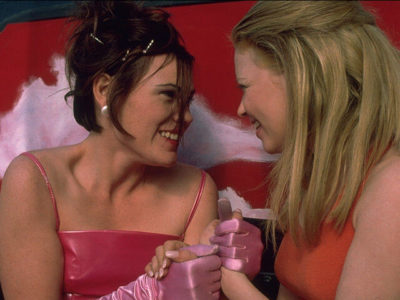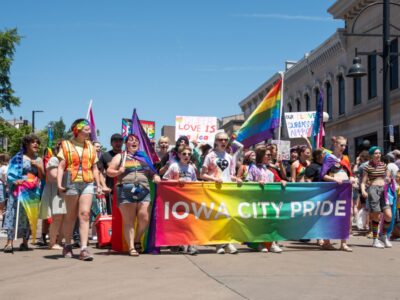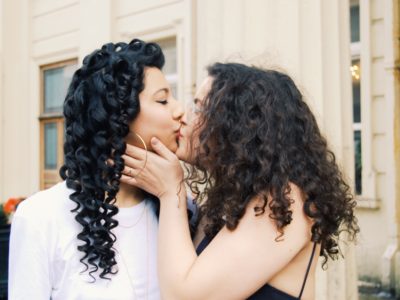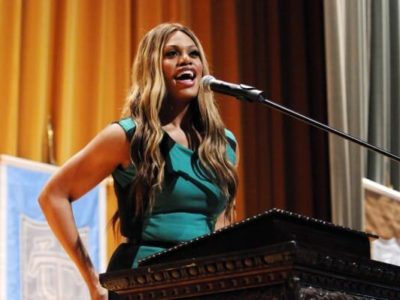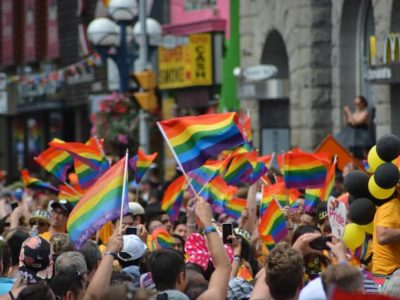If you are a member of the LGBTQ+ community, you may be looking for colleges with high LGBTQ+ populations. I came out in college and chose my school without considering the LGBTQ+ population. If I were to apply to colleges again, this is definitely something I would consider. While my university is by no means a bad place to be gay, there are universities out there that make it a top priority that their LGBTQ+ students feel at home. Between student organizations, gay bars and sexuality studies courses, there are many ways to connect with the LGBTQ+ community in college. Safety is another thing to consider, as well as the administration’s vested effort in protecting their LGBTQ+ students.
Read on to find out the top 10 LGBTQ+ colleges:
10. Brown University
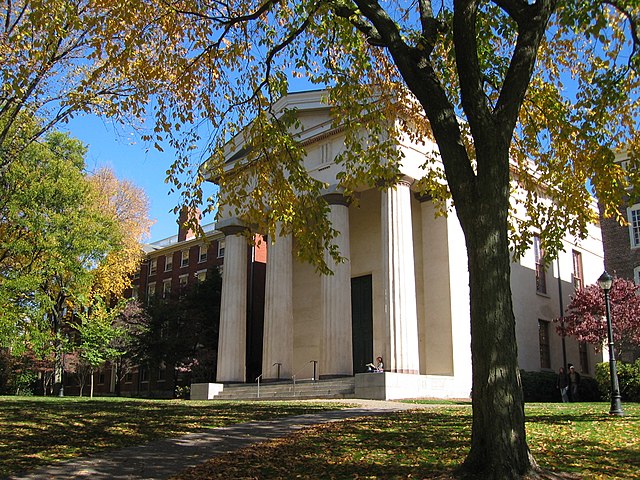
With a whopping 38% of the student body identifying as a part of the LGBTQ+ community, I understand why Brown is frequently associated with LGBTQ+-friendly colleges. Given the school is in Providence, Rhode Island, it is a pretty safe state to be a part of the LGBTQ+ community. There are roughly nine gay bars in Providence. Brown also has three LGBTQ+ student organizations.
Brown offers a concentration plus a graduate program in gender and sexuality studies. There is a center devoted to the LGBTQ+ community. This center is located at the Stonewall House as of 2022. Given that they recently moved, this proves the school is staying on top of expanding the resources available to LGBTQ+ students. This shows the school’s willingness to invest money in protecting the rights of the LGBTQ+ community.
9. Smith College
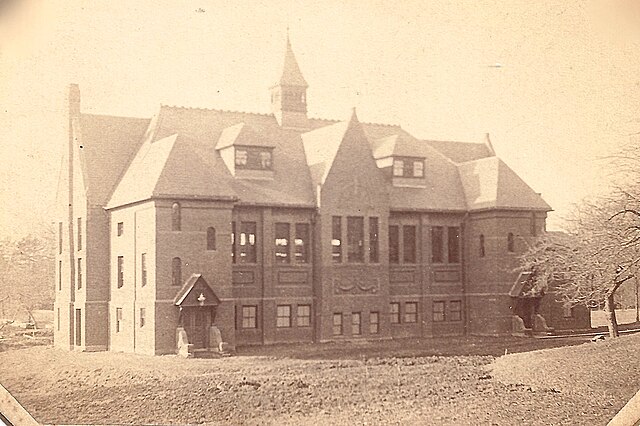
Smith College has two student organizations focused on the LGBTQ+ community. They also have a website and community titled “LGBTQ+ Alumnae Alliance.” Smith College offers a major and even summer programs for high schoolers called “Women, Gender & Representation.”
There are extensive resources on the school’s website, indicating an administration that cares about the community. With Smith College located in Massachusetts, lots of laws exist that protect LGBTQ+ rights. As a women’s college, lesbian and bisexual women will have increased chances of meeting other women. They are also accepting of transgender and nonbinary students. On their website, they even acknowledge that “Gay and gender nonconforming students might gravitate to Smith because of its reputation as a place that welcomes them…”
8. American University
American University has one student organization devoted to LGBTQ+ rights alone, which consists of four parts and appears to be rather large. When it comes to gender and sexuality studies, they offer a major and two minors. While it’s hard to say exactly how many LGBTQ+ students attend, online resources suggest about 17% of the student body make up the LGBTQ+ community. The university also has a high level of interest in LGBTQ+ rights, providing a plethora of online resources such as housing guides, a guide to pronouns and health equity resources. You’ll find roughly 40 LGBTQ+ friendly bars near the school and the surrounding area.
American University is in DC, where a good amount of legislation protects the LGBTQ+ community. Furthermore, DC puts the student in proximity to a variety of demonstrations and community events supporting the LGBTQ+ community. This location also gives AU the advantage of the majority of the student body being politically active. This means there will be a plethora of opportunities to mobilize and march with classmates in support of the LGBTQ+ community.
7. University of Michigan
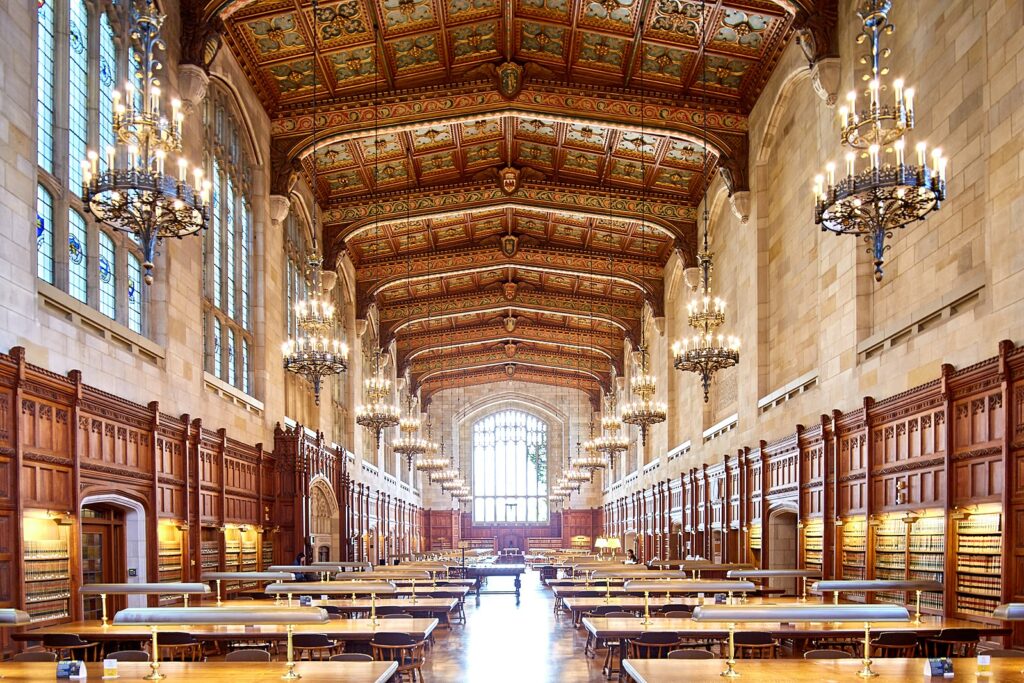
At the University of Michigan, you’ll find at least five student organizations devoted to LGBTQ+ rights. There are several university sponsored diversity initiatives focusing on the LGBTQ+ community as well. They also have social groups for staff members who are a part of the LGBTQ+ community. Since the school encourages the LGBTQ+ professors to organize, that means the school listens to their LGBTQ+ staff. Ann Arbor, Michigan where the school is located also has an incredible 18 official and unofficial gay bars.
“There’s a hugely diverse student body and attitudes are very accepting and welcoming,” University of Michigan junior Alexa King said.
The University of Michigan also has a dedicated center for the LGBTQ+ community. In terms of gender and sexuality studies, they have a major and four different minors. The minors include Gender, race, & nation; LBGTQ+ & Sexuality Studies; Gender & Health; and finally Gender & Health Global/Historic. Some interesting classes offered include Sex & Sexuality in Jewish History and Culture and Psychology of Human Sexuality. While the state of Michigan provides ample legal protection for LGBTQ+ individuals, it does fall short of some other states on this list.
6. Barnard College
To my astonishment, there are roughly 90 gay bars near Barnard College. One such bar is the National Historic Landmark known as the “Stonewall Inn.” This bar was the site of the 1969 Stonewall Riots. While the bar is a tourist attraction by day, almost every night is for drinking and mingling. Since Barnard is a college of Columbia and in the heart of NYC, this makes sense. NYC has many bars, and with more bars, this means more LGBTQ+ bars. With this many bars to choose from, there are no doubt bars that specialize in drag and different LGBTQ+ interests. While a relatively small school, Barnard sports seven different LGBTQ+ focused student organizations.
“I think Barnard is very inclusive and creates a welcoming environment for everyone, such as the LGBTQ+ community. Barnard ensures there are many resources and spaces for members of the community to get support, get to know one another and celebrate Queer joy,” Barnard College Junior Maya Shore said.
They have an entire department devoted to women’s studies. Furthermore, since Barnard is an all-girls school, your chances of meeting women are higher. While there is no in-person LGBTQ+ center, they do offer extensive online resources such as crisis support lines, chosen name information, and resources for LGBTQ+ employees. Since Barnard is in NYC, there is ample legal protection for LGBTQ+ students. The women’s major offers a holistic approach to studying gender, exploring it through scientific and literary lenses.
5. Dickinson College
Dickinson College offers an LGBTQ+ center and extensive online resources, including a glossary, links to several different centers, and an alumni network. Another such resources is a page detailing all of their staff members, totaling fifteen different professors. This is the only of its kind I found while surveying twenty schools that demonstrate their enthusiasm towards protecting the LGBTQ+ community. They have a Queer & Trans Advocacy Committee who currently work towards getting gender-neutral bathrooms. Dickinson is also a part of the Consortium of Higher Education LGBTQ+ Resource Professionals.
They have a major, minor, and an entire department devoted to women and gender studies. This department has four core staff members and 30 part-time staff members. Dickinson College has four gay bars nearby. Located in Pennsylvania, LGBTQ+ individuals have pretty solid legal protection. The school is also within driving distance of Pittsburgh and Philadelphia, both of which have a strong LGBTQ+ presence and nightlife.
4. Scripps College
With about six gay bars, Scripps College is well located to meet other members of the LGBTQ+ community. Scripps offers one student organization focused on LGBTQ+ rights. They also offer a gender and sexuality studies major, minor, and its very own department. Scripps has an LGBTQ+ center, and frequently hosts LGBTQ+ centered events. One such event includes ‘Queerish: Photography and the LGBTQ+ Imaginary.’ This exhibition combined history and art to bring LGBTQ+ education to life. One great resource Scripps offers includes an online glossary spanning definitions of different sexualities, genders, and lgbtq centric topics such as gender dysphoria.
There are at the very least two LGBTQ+ staff members, as well as an LGBTQ+ staff group posted on the school’s website. Since Scripps is in California, many laws are in place to protect LGBTQ+ rights. Scripps College is also an all-girls school, so if you’re a girl looking to date other girls, you’re at an advantage. Scripps College is open to trans women and nonbinary students as well.
3. Mount Holyoke
Mount Holyoke College has a department devoted to gender and sexuality studies. They offer a major and a minor. Mount Holyoke is near roughly five gay bars. According to College Transitions, over half of the student body is a part of the LGBTQ+ community. Since it’s also an all-girls school, if you’re a girl who’s interested in other girls, that’s almost half the student body you could potentially date.
“The best thing about this school is that it’s a place that queer people flock to naturally. Having that community is really important,” Mount Holyoke Junior Indie Murphy said.
There are only four student organizations, but given it’s a smaller school, that is pretty impressive. There are also LGBTQ+ focused Living Learning Communities for interested undergraduates. A club that stuck out was ‘Familia,’ which provides community and support to LGBTQ+ students of color. There are extensive online resources as well as an in-person LGBTQ+ center. Since Mount Holyoke is in Massachusetts, it is one of the safest states in the country to be out and proud. As one of the Seven Sisters, it’s historically a small liberal arts college.
2. UC Berkeley
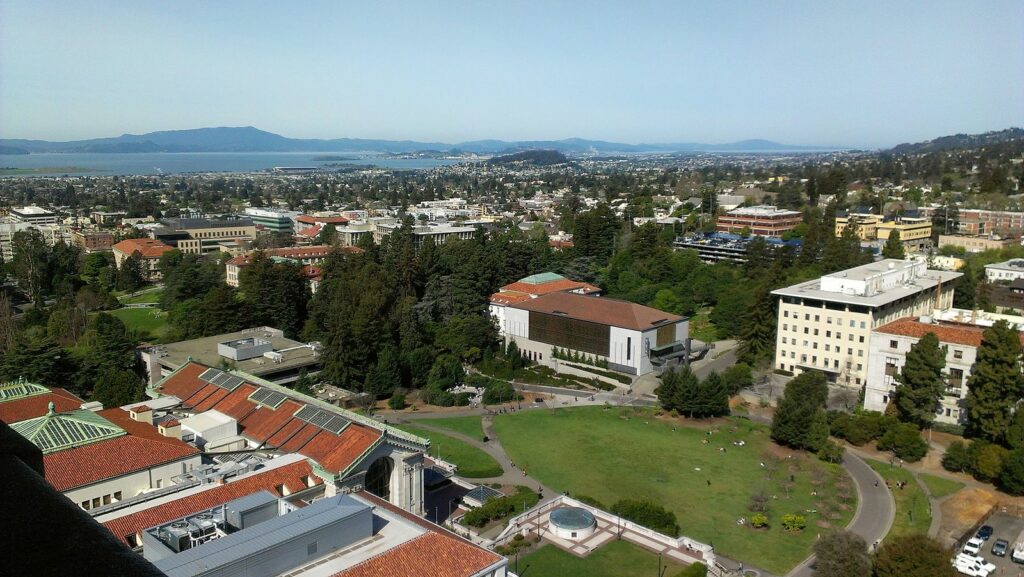
California is known as one of the safest states to be a part of the LGBTQ+ community. It comes as no surprise then that the LGBTQ+ community has a strong presence at UC Berkeley. 13% of students identify as members of the LGBTQ community, and another 1% as transgender. The student body has roughly 24 different LGBTQ+ centric student organizations. But the LGBTQ+ doesn’t just support the university; the university supports them in return.
In terms of gender and sexuality studies, they offer two minors, a major, a master’s and Ph.D. program. Their major is also focused on sexuality studies, titled “Lesbian, Gay, Bisexual and Transgender Studies.” The university also regularly hosts LGBTQ+ focused community events. With roughly 14 gay bars, the surrounding city of Berkeley supports the LGBTQ+ community as well. UC Berkeley does provide extensive online resources for their LGBTQ+ students to make use of. Considering they’re a state school with a limited budget, that suffices. They also have LGBTQ+ focused offices within Health Services, Housing, Educational Justice, and Career Engagement.
1. Sarah Lawerence College
With about fifteen gay bars near the college, it’s fun to be gay in New York. Since this college is in New York, LGBTQ+ rights are legally well-protected. But Sarah Lawerence takes the number one spot on this list because they specifically cater to the LGBTQ+ community. With seven different LGBTQ+ student organizations focusing on various niches, they even have a club for LGBTQ+ furries. They also offer a gender studies track. The gender studies track is focused on the LGBTQ+ community and is titled “Lesbian, Gay, Bisexual and Transgender Studies.” On the homepage, you can find a well-cataloged resource of courses offered in this major that also overlap with other majors, for students looking to study these identity facets without committing to a major for it.
The college demonstrates high levels of interest in the LGBTQ+ community. They have a devoted LGBTQ space within Bates. Bates is a building that serves as a meeting space for minorities attending Sarah Lawerence. This includes the LGBTQIA+ space, which serves as a lounge and meeting room. They host speakers, workshops, study sessions and more. They also have extensive LGBTQ+ resources for students on their website, including study abroad advice, insight into knowing one’s sexuality and links to contacts and communities. The school has 1,600 students, so the undergraduate community is likely closer-knit than most big schools. The surrounding area of West Chester County is close to NYC, where you’ll also find a larger LGBTQ+ community as well. Overall, Sarah Lawerence has earned its reputation as a foothold, if not Holy Land, for queer students.








